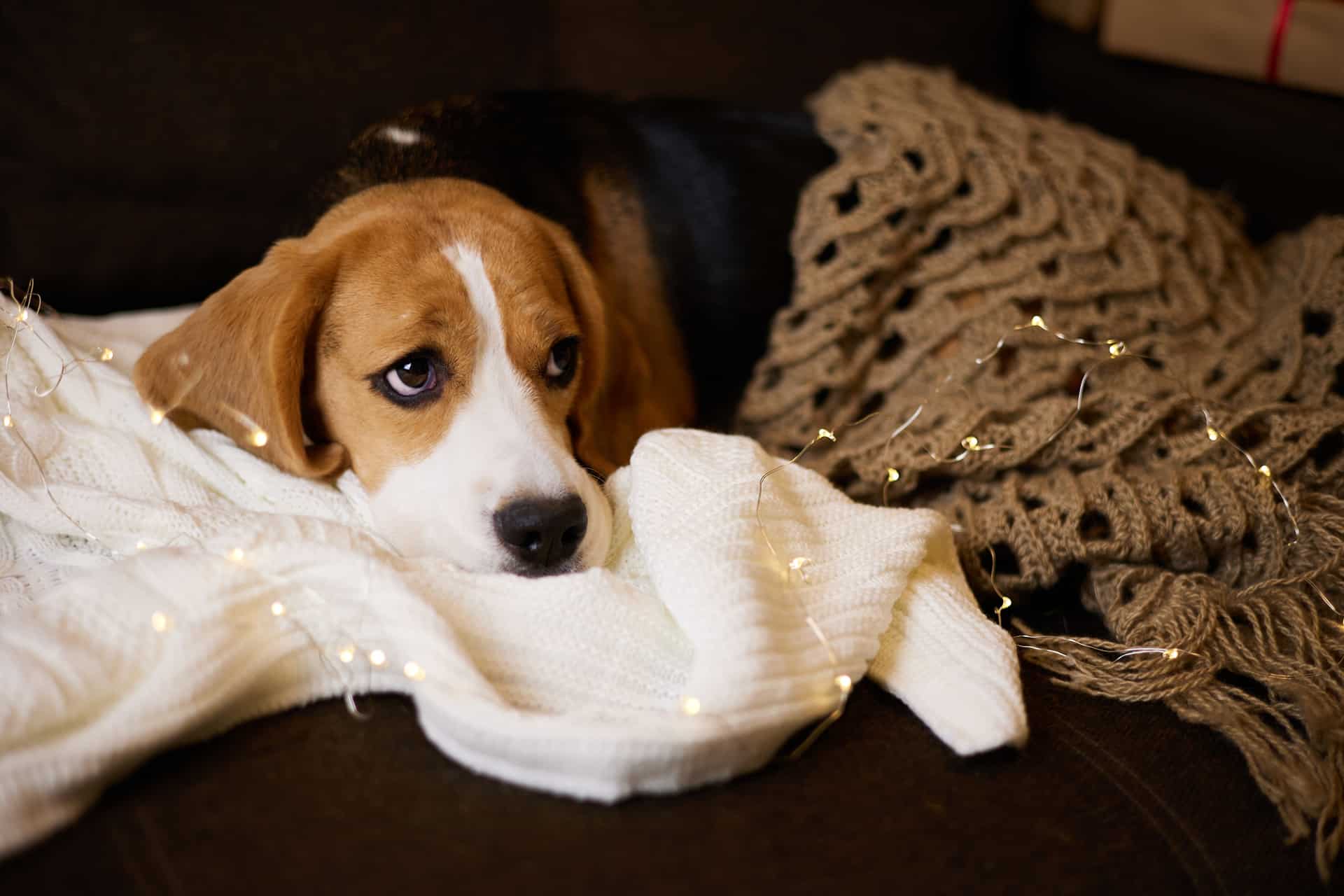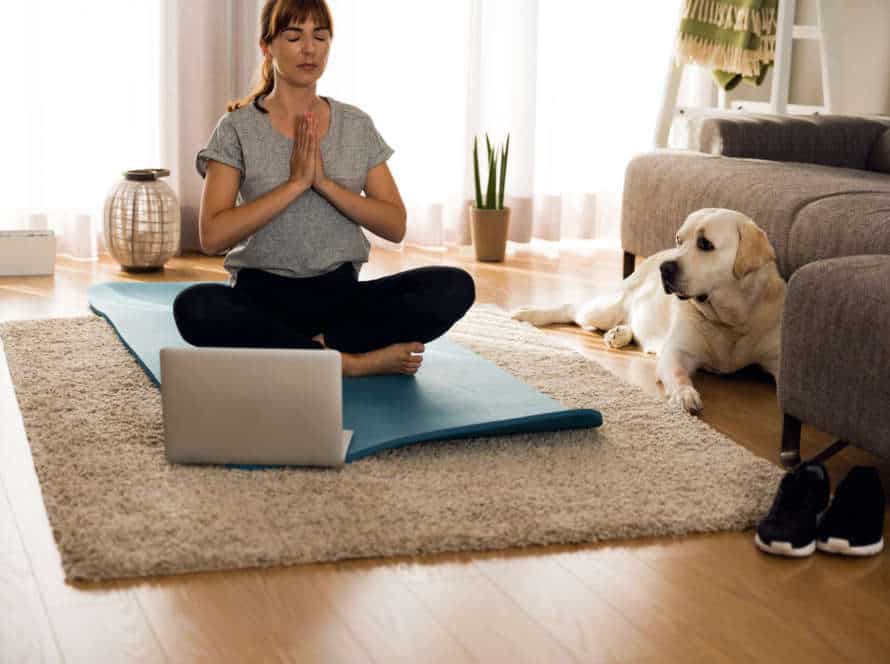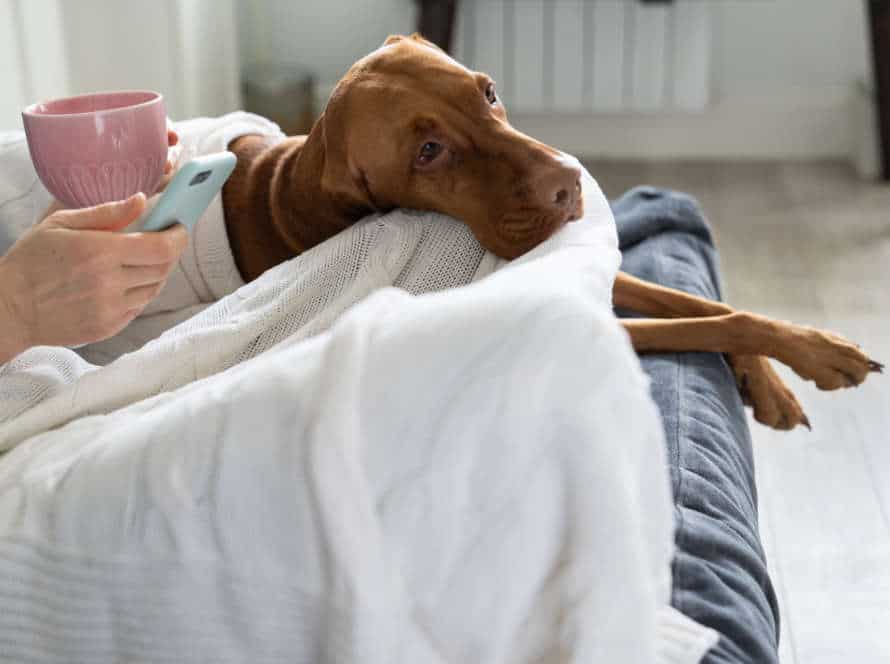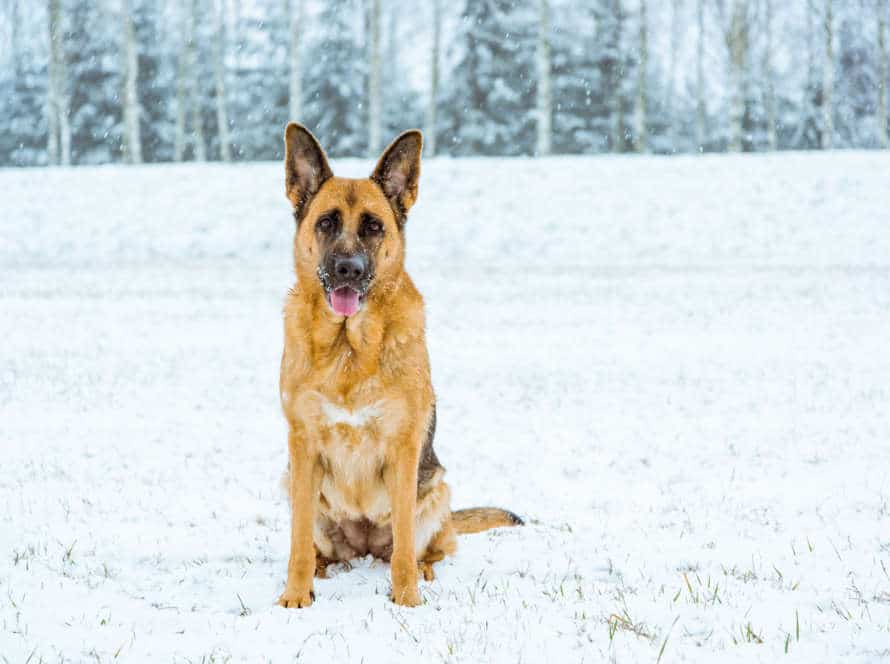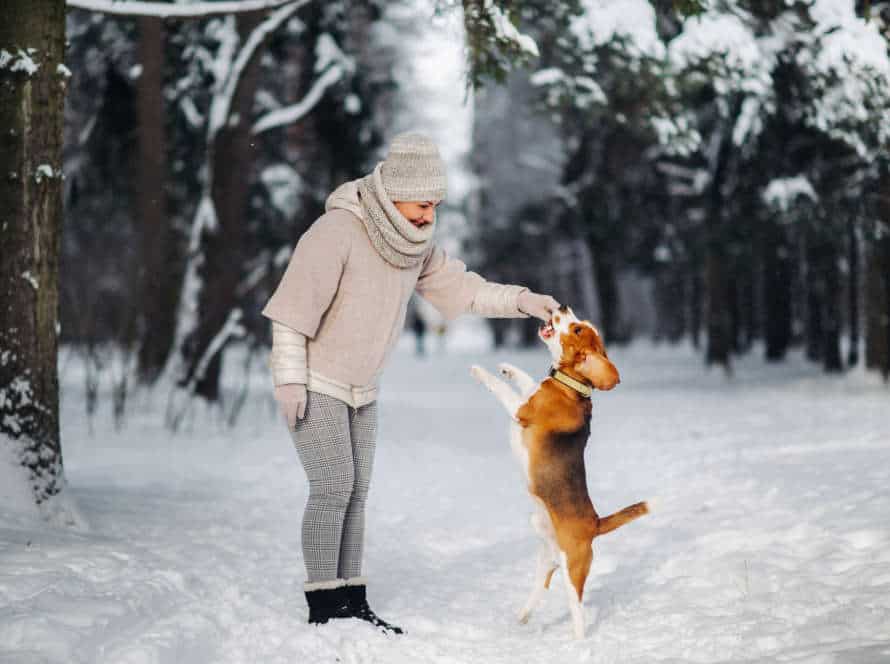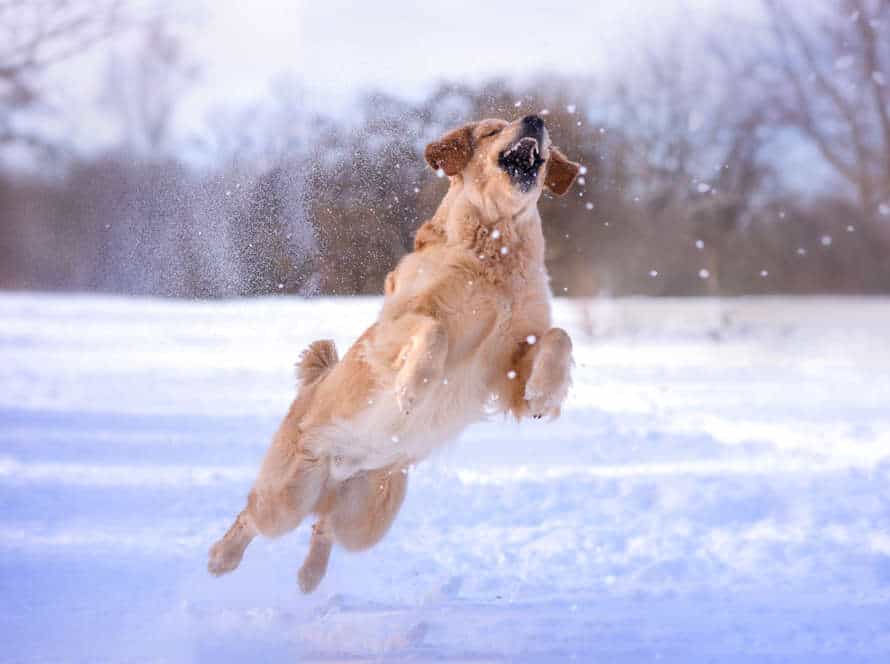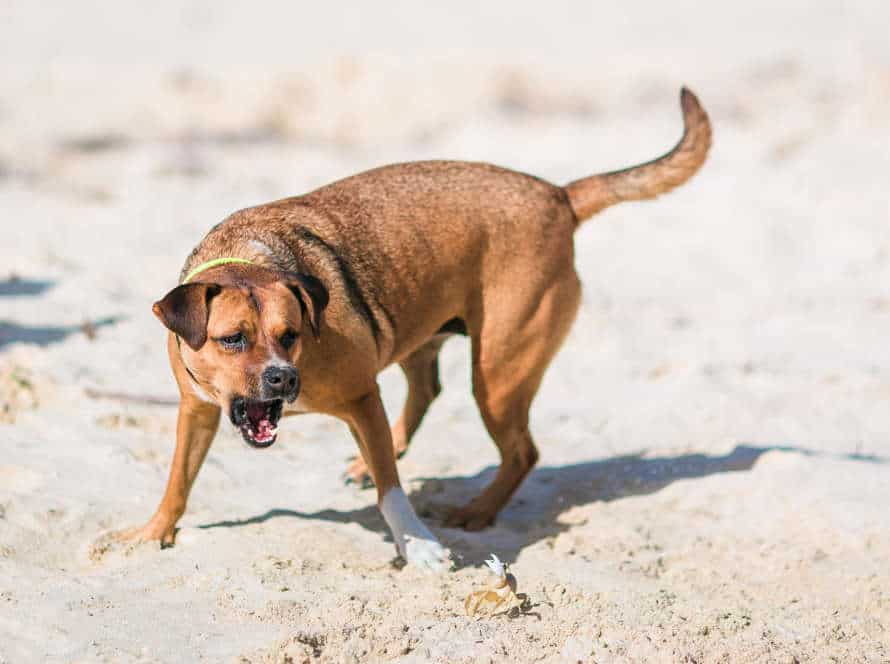Understanding Puppy Anxiety
Puppy ownership is both hard work and incredibly gratifying. New pet owners should be aware of puppy anxiety, as it can cause your pup severe distress. To make sure your pup isn’t suffering, it’s important to understand the science and create good routines.
Let’s delve deeper into puppy anxiety and how to manage it.
Symptoms of Anxiety in Puppies
Anxiety in puppies is common. It can show in many ways. Here are some to look out for:
- Restlessness and agitation. Puppies with anxiety may have trouble settling. They may be restless or constantly move around.
- Destructive behavior. Anxious puppies may chew furniture, walls or things. This can cause damage, so watch out!
- Barking and whining. Puppies may bark or whine when alone or if they feel uncomfortable.
- Loss of appetite. Anxiety can disrupt eating. This can lead to not wanting to eat.
To help reduce anxiety, give puppies a routine. Feeding and exercise should be at the same time. Also, give them a safe space, like a crate or bed. If symptoms are severe, speak to a vet. Calming aids, like pheromone sprays or meds, may help.
Importance of Establishing Routines for Puppies
Developing routines for puppies is a must for reducing anxiety and improving their physical and mental health. They require predictability and consistency in their lives to feel safe, secure and self-assured.
Here are the reasons why creating routines for puppies is so important:
- Helps them adjust to their new home: Puppies experience many changes when they move. A regular routine can help them fit into their new surroundings and be more relaxed.
- Supports good behavior: Routine and structure make puppies thrive. Consistent feeding, exercise and playtime plans can stop bad habits and encourage good ones.
- Reduces stress: Regular routines can help puppies feel secure, lowering their stress and anxiousness.
- Assists with potty training: Establishing a routine for potty breaks makes potty training simpler and more successful.
By giving structure and routine to your puppy, you can help them feel relaxed, secure and confident, decreasing anxiety and supporting good behavior.
Benefits of Reducing Puppy Anxiety
Puppies often suffer from anxiety, which can bring lots of advantages to them and their owners. To lower their anxiety, it’s important to identify the causes and create a routine.
The advantages of decreasing anxiety are:
- Behavior improvement: An anxious puppy can bark, bite, or dig too much. Lowering anxiety can stop these behaviors from happening.
- Improved socialization: Anxious puppies may struggle to interact with other animals or people. With less anxiety, they can be more confident and socialize better.
- Increased health: Anxiety can lead to physical issues like high blood pressure and weaken the immune system. Reducing anxiety can improve their health.
By setting up a routine and using positive reinforcement, puppies can learn to be more secure and reduce their anxiety.
Establishing a Routine for Puppies
Routine and structure are essential for puppies. This helps reduce anxiety and confusion. It also assists with house-training and teaching good behaviors. All pups require a routine to become healthy and happy grown-up dogs. Here are some tips for setting up a routine for your puppy:
Create a Feeding Schedule
Creating a schedule for puppy feedings is vital. It helps keep their anxiety down and keep them healthy. Dogs like routines; it gives them a sense of security. Here are tips for setting up a feeding routine for your pup:
- Figure out the right portion size and frequency for your pup based on its age, breed, and weight.
- Split the daily portion into smaller meals to avoid overfeeding or indigestion.
- Feed your pup the same time each day to make a consistent routine.
- Don’t give your pup table scraps or human food – this can cause tummy troubles or bad behaviors.
- Always provide your pup with clean water.
Bonus Tip: Your pup’s feeding needs may alter as they grow, so stay ready to adjust the feeding schedule.
Establish a Consistent Sleep Schedule
Creating a steady sleep schedule is super important for puppies. It helps them form a good routine, keeps anxiety levels low, and makes sure they get the rest they need. Here are some tips:
- Pick a bedtime and stick to it – even on weekends. This regulates their sleep-wake cycle.
- Make the room dark, quiet, and cool for their sleep. Use white noise to assist them.
- Choose a waking-up time and stick to it. This builds a regular routine.
- Limit daytime naps to 2-3 hours. Too many can disturb night-time sleep.
- Be patient. It may take days or weeks to form a consistent schedule. With patience and consistency, they’ll learn when to sleep and when to play.
Develop an Exercise Routine
Establishing a routine for your pup can help reduce anxiety and create a healthy, happy life! Here are some tips for setting up an exercise plan:
- Start Slow: Begin with short walks and gentle exercises. Increase intensity and duration as your pup gets more comfortable.
- Stay Consistent: Set a schedule and stick to it. Regularity is vital for a successful routine.
- Create a Safe Space: Ensure the area is risk-free for your pup’s exercise. Puppy-proof the area to stop harm.
- Have Fun: Play fetch, hide-and-seek, or go on a run! These activities keep pups active and motivated.
By crafting an exercise plan, you’ll not only help your pup stay fit, but also reduce anxiety and bad behavior.
Pro Tip: Ask your vet what type of exercise your pup needs.
Implement Positive Reinforcement Training Methods
Positive reinforcement training is an efficient and effective way to make puppies behave the way you want them to. Praise them, give them treats, toys or whatever they like.
It’s important to have consistent routines with your pup, especially when they’re feeling anxious or scared. With positive reinforcement you can both create a secure environment for your puppy and help them form good habits.
Reward Good Behavior
Rewarding good behavior is key for positive reinforcement training with puppies. This technique helps create routines and reduces puppy anxiety by making good behavior enjoyable. Here’s how to reward your pup’s good behavior:
- Use treats! Immediately give a small treat when your puppy behaves well, like sitting on command.
- Praise them! Use nice words with a happy voice to show you’re pleased with their behavior – just say “good boy/girl!”
- Give attention! Show love and affection when your pup behaves well. Belly rubs are usually a hit!
Using positive reinforcement will make your puppy more likely to repeat good behavior.
Tip: Consistency is key for the best results!
Establish Consistent Commands
Consistent commands are needed for successful positive reinforcement training of puppies. Simple, clear commands like “sit,” “stay,” and “come” should be used all the time. Positive reinforcement such as treats, praise, and petting should come when the pup follows a command correctly.
Short practice sessions should be done regularly and made more difficult over time. The same commands should also be used and reinforced during daily routines like feeding, playing and walking.
By following these steps, puppies will learn to adapt quickly to positive reinforcement, resulting in a well-behaved and content pet.
Encourage Socialization
Socializing a puppy is essential. Start early and use positive reinforcement training methods, such as clicker training, treats and praise. Establishing routines, like consistent feeding and walking times, can minimize anxiety.
Expose your pup to different people, animals and environments. This will help them be comfortable in different situations.
With patience, consistency and the right methods, successful socialization will happen and your pup will grow into a happy, well-adjusted adult dog.
Provide Comfort and Security for Puppies
Establishing a routine for your pup is essential. To make them feel secure and calm, a reassuring atmosphere is key. Having a consistent, predictable routine helps show that everything is alright. Here’s how to create one:
Create a Cozy Sleeping Environment
Creating a comfy sleeping environment is essential for your puppies’ comfort and security. Plus, it reduces their anxiety too! Here are some tips for success:
- Bed: Get a cozy and supportive bed for your puppies, in a quiet corner.
- Blankets: Get soft, washable blankets for extra warmth and comfort.
- Crate: Put your puppies in a crate – the right size – and keep it in the same spot every night.
- Routine: Have a regular routine for feeding, playing, and sleeping.
- Comfort Toys: Give them chew toys, soft toys, or a blanket they like – for familiarity and security.
- Pro Tip: Always watch your puppies while they sleep – for safety and wellbeing.
Provide Chew Toys and Puzzles for Mental Stimulation
Chew toys and puzzles can be a great way to create a routine for puppies and give them comfort and security. These activities also stimulate puppies mentally, decreasing boredom and stress. Puzzles that test their cognitive abilities help them develop good behaviour.
When choosing toys and puzzles, keep in mind your pup’s age, size, and chewing habits. Rotate the toys and puzzles regularly to keep your puppy interested. Introduce new items gradually and keep an eye on your pup while they play.
Don’t forget, chew toys and puzzles are only one part of creating routines. Exercise, playtime and socialization are essential for puppy wellbeing.
Use Calming Techniques during Stressful Situations
Establishing a daily routine can help lower anxiety and give puppies a sense of comfort and protection. Here are a few tips to assist with calming during times of stress:
- Give a comfy bed or crate for your pup to relax and feel safe.
- Have a reliable feeding, exercise and play schedule. This predictability can help them feel secure.
- Play some soothing music or white noise to create a tranquil atmosphere for your pup.
- Use positive reinforcement training so the pup links stressful situations with good results.
- Provide lots of love, care and affection to help your pup feel protected and secure.
By making a routine, offering a secure environment and using positive reinforcement training, you can help your pup remain relaxed even in tense moments.
Seek Professional Help if Needed
It’s important to set up routines for puppies. But this can be tricky to do by yourself. It’s advised to get help from a pro. They can give you valuable insight into puppy behaviour. Plus, they can give you advice on how to make routines that will help you and your pup in the future.
Consider Consulting with a Veterinarian
Establishing routines is a great way to help keep your pup’s anxiety levels low. But, it’s important to consult a vet if your puppy isn’t adjusting or displays extreme anxiety.
If your pup is crying, whining or being destructive, it could be a sign of a medical or behavioral issue.
Lethargy or not eating might suggest a health issue too.
If you’re unsure about what’s best for your puppy’s diet, exercise or grooming, a vet can provide tailored advice.
Puppies have specific needs and seeking help can stop problems before they get worse.
Pro Tip: Taking your pup for regular vet check-ups will help them remain healthy and happy in their routine.
Find a Reputable Dog Trainer
Finding a reputable dog trainer is vital to make sure your pup gets the best training possible. Not all pups need professional training, but if they show signs of anxiety, it is better to get assistance from a professional instructor. Here are steps to finding a credible dog trainer:
- Research – Ask friends or read online reviews.
- Qualification – Check if the trainer has a certification from a reliable organization.
- Methodology – See if the trainer’s approach matches your training philosophy.
- Skillset – Confirm the trainer has the skills to tackle issues your puppy has.
- Location – Choose a trainer closeby, making it convenient for both you and your pup.
Having routines is very important to reduce anxiety in your pup. Introducing routines early in feeding, exercise, and sleeping will help your pup adjust and become less anxious.
Pro Tip: Seek professional help if your pup shows signs of anxiety that training routines cannot address.
Consider CBD Products for Anxiety Reduction.
CBD products have become popular as a natural way to reduce anxiety. But if it persists, seek help. For puppies, routines and a secure environment can help. Here are tips:
- Establish feeding, play, and rest times.
- Create a comfy spot for security.
- Exercise and stimulate to avoid boredom and anxiety.
- Watch for signs like pacing or whining. If anxiety is severe, consult a vet or behaviorist.
- Pro tip: talk to a healthcare professional before using CBD.
Frequently Asked Questions
1. What are the benefits of establishing routines for puppies?
Establishing routines helps puppies feel secure and comfortable in their surroundings, reduces stress and anxiety, promotes good behavior and training, and helps them develop healthy habits.
2. How often should I feed my puppy?
Puppies should be fed at least three times a day, preferably at the same times each day. This helps establish a routine and prevents hunger and anxiety.
3. How much exercise does my puppy need?
Puppies need regular exercise to burn off energy and stay healthy. The amount of exercise required depends on the breed, size, age, and health of the puppy. A general guideline is 5 minutes of exercise per month of age up to twice a day.
4. How do I create a daily schedule for my puppy?
To create a daily schedule, determine the times for feeding, exercise, playtime, training, and rest. Be consistent with the schedule and adjust it as your puppy grows and develops.
5. What should I do if my puppy becomes anxious or stressed?
If your puppy becomes anxious or stressed, take a break from the routine and reassess their needs. Provide a calming environment, calming music or white noise, and consider seeking advice from a veterinarian or animal behaviorist.
6. How long does it take for my puppy to adjust to a routine?
It may take a few weeks for a puppy to adjust to a routine. Be patient and consistent, and your puppy will eventually learn to follow the routine and feel more comfortable and secure in their surroundings.

